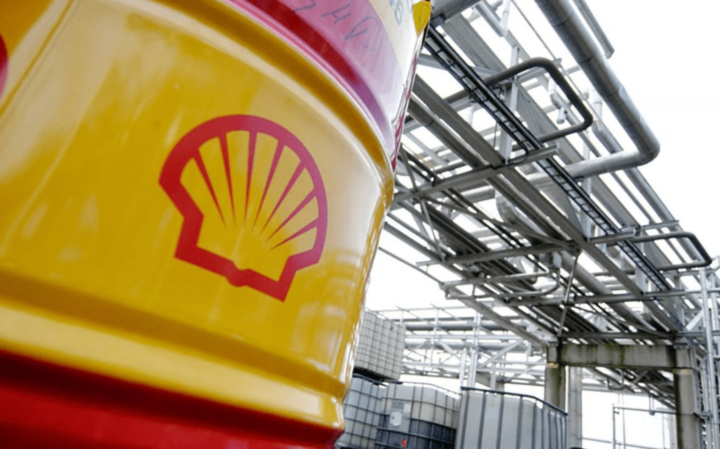Shell Petroleum Development Company (SPDC) has emphasized the importance of strong partnerships between International Oil Companies (IOCs) and indigenous energy firms to accelerate Nigeria’s gas production and achieve the nation’s energy transition goals. The company stressed that increased collaboration would enhance investment, technology transfer, and sustainable development in the country’s gas sector.
Speaking at the recent Nigeria International Energy Summit (NIES) in Abuja, Shell’s Managing Director, Osagie Okunbor, said that Nigeria has one of the largest natural gas reserves in the world but continues to lag in production and utilization due to underinvestment, infrastructure deficits, and regulatory bottlenecks. He noted that bridging the gap requires a collective effort between IOCs and domestic firms that can leverage local expertise and global technical capacity.

According to Okunbor, “Nigeria’s energy future depends heavily on how effectively we can harness our gas resources. Collaboration between international and local companies is crucial for achieving scale, efficiency, and innovation in gas development. No single entity can do it alone — partnership is the key to unlocking Nigeria’s gas potential.”
He explained that Shell is committed to deepening investments in Nigeria’s gas value chain, particularly in infrastructure and distribution networks that can support the nation’s ambition of becoming a gas-powered economy. He added that the company’s current focus aligns with the Federal Government’s “Decade of Gas” initiative, which seeks to utilize gas as the main driver of economic growth and industrialization.
Okunbor highlighted that the transition toward gas is not just about export earnings but also about providing affordable energy for domestic industries, households, and transportation. He stated that increasing gas supply would improve electricity generation, promote clean cooking, and attract more foreign investments into manufacturing.
The SPDC boss also called for a more conducive investment climate to encourage joint ventures between local and foreign firms. He urged policymakers to sustain regulatory clarity, fiscal stability, and transparency to attract long-term investments into the gas sector. “Investors need certainty,” he said. “Policies must be consistent and supportive of private sector participation, especially in midstream and downstream gas infrastructure.”
Industry experts at the event shared similar views, stressing that indigenous firms play a vital role in the expansion of Nigeria’s energy frontier. They pointed out that partnerships between IOCs and local companies would not only enhance technical know-how but also promote capacity building, job creation, and community development.
An energy analyst, Mrs. Chinwe Adebayo, explained that “Local content participation is the backbone of a sustainable energy sector. When international and indigenous companies collaborate, it results in the sharing of technology, skills, and innovation that drive efficiency across the value chain.”
Adebayo also noted that Nigeria’s push to boost domestic gas supply aligns with the global drive toward cleaner energy. With growing concerns about carbon emissions and climate change, she said that gas — being a cleaner alternative to oil — offers Nigeria a strategic advantage in balancing energy security and environmental sustainability.
Recent data from the Nigerian Upstream Petroleum Regulatory Commission (NUPRC) shows that Nigeria holds over 209 trillion cubic feet of proven gas reserves, ranking it among the top 10 globally. However, actual production remains below 8 billion standard cubic feet per day (bscf/d), far lower than its potential. Experts believe that partnerships between IOCs and local firms could bridge this production gap and expand domestic utilization.
Shell’s call for collaboration comes at a time when the Nigerian government is intensifying efforts to attract more investments into the gas sector. The Petroleum Industry Act (PIA) has provided a new framework for gas development, while initiatives such as the Nigerian Gas Flare Commercialisation Programme (NGFCP) and the Gas Infrastructure Fund aim to drive sustainable growth.
In line with these efforts, Shell has invested in several gas infrastructure projects, including the Assa North-Ohaji South (ANOH) Gas Project, which is expected to deliver over 300 million standard cubic feet of gas daily. Okunbor said such investments are crucial for meeting domestic demand and supporting power generation across the country.
He further emphasized that the future of Nigeria’s gas industry lies in shared responsibility. “This is the time for stakeholders to join forces — government, regulators, IOCs, and indigenous companies — to make Nigeria’s gas dream a reality. By working together, we can unlock new value, create jobs, and position Nigeria as a regional gas hub,” he added.
In addition, Shell reaffirmed its commitment to sustainability and local capacity development. The company disclosed that it continues to support Nigerian engineering firms and local contractors through its enterprise development initiatives. According to the company, over 90 percent of its contracts in Nigeria are currently executed by indigenous companies, demonstrating its confidence in local capabilities.
As Nigeria navigates its energy transition journey, experts say that strong partnerships will be instrumental in reducing the country’s dependence on oil and expanding its gas-based industrial economy. They argue that with coordinated action, Nigeria can significantly increase gas production, boost export earnings, and meet its domestic energy needs sustainably.
Analysts believe that if IOCs and indigenous operators align their strategies, Nigeria could achieve self-sufficiency in gas supply and establish itself as a key exporter in the global energy market within the next decade. With Shell and other major players championing collaboration, the outlook for Nigeria’s gas sector appears increasingly promising.
Support InfoStride News' Credible Journalism: Only credible journalism can guarantee a fair, accountable and transparent society, including democracy and government. It involves a lot of efforts and money. We need your support. Click here to Donate
